Burnt again... Is it possible to quickly and effectively clean enamel cookware from burnt jam, completely remove carbon deposits, and restore pristine cleanliness?
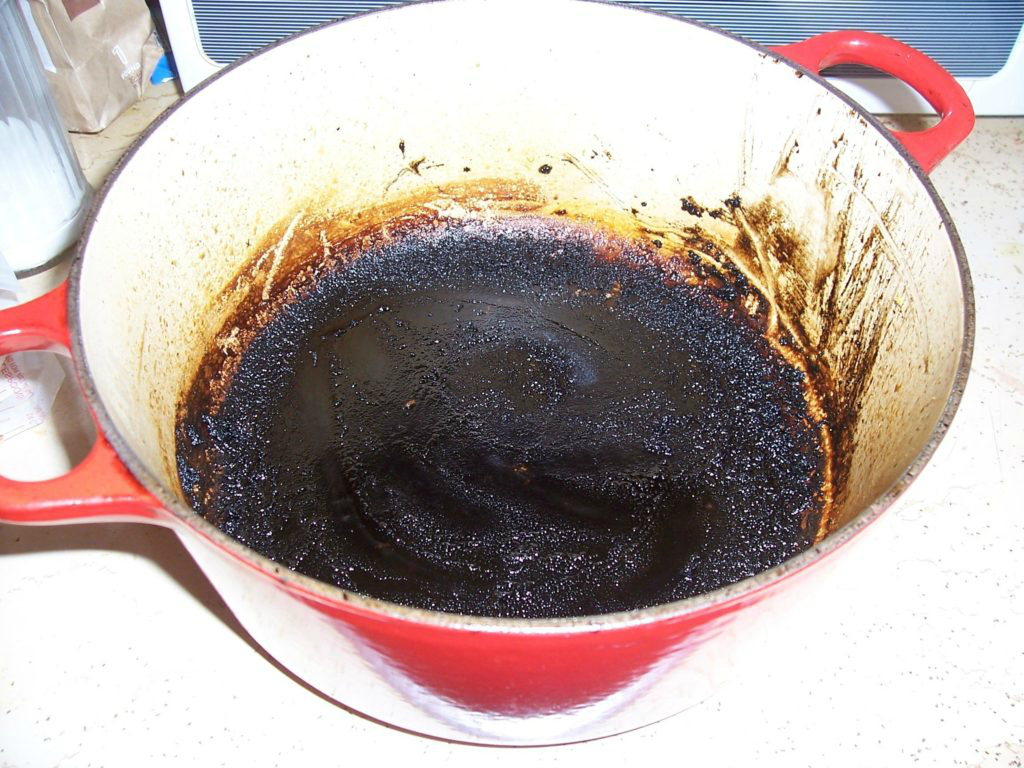
These questions are often asked by housewives who decide to make jam in a pan with an enamel coating. The porous structure of the enamel coating is the main reason for burning. Among others, inattention, lack of time to follow the rules for making jam. As a result, searching for information on the topic: “How to clean an enamel pan from burnt jam.”
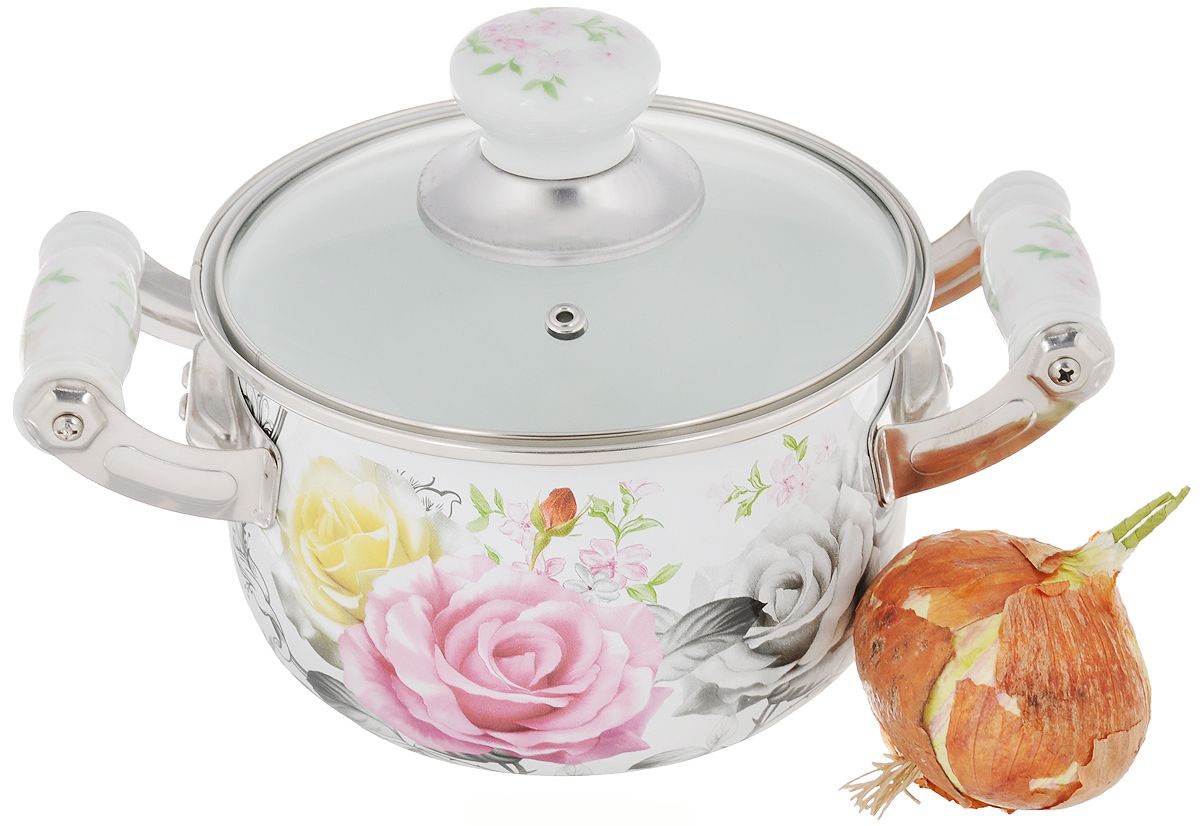
Content
- Why choose enamelware
- Why does food burn in enamel cookware?
- How to clean an enamel pan from burnt jam
- Special products for cleaning burnt pans
- How to deal with severe burning of the enamel surface
- Preventive measures when cooking jam in enamelware
- How to care for enamel cookware
- VIDEO: How to clean a badly burnt pan.
Why choose enamelware
Enamelware is widely known and used for 180 years. Even with the advent of microwave ovens and other smart technology, it has not lost its relevance and popularity. It is made from different types of metal, which is coated with enamel during the processing.
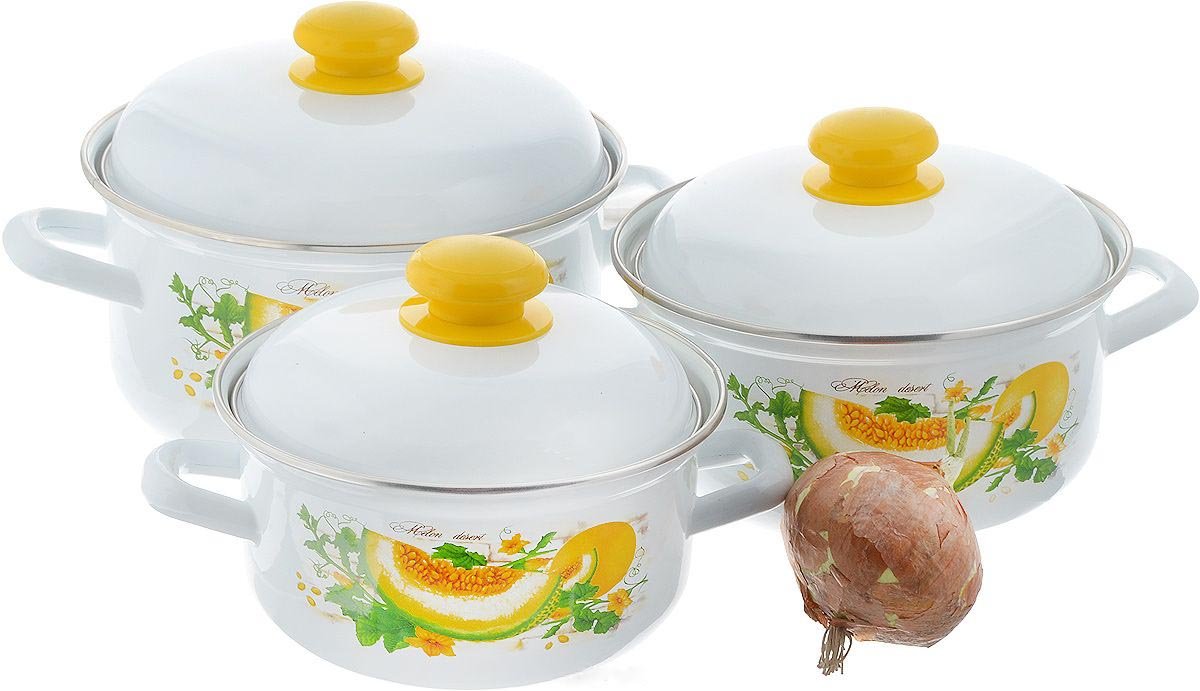
The undeniable advantages of such dishes:
- the enamel coating ensures the safety of the prepared food;
- durable use when properly handled;
- the resistance of enamel in acidic and alkaline environments is important when choosing products;
- easy to care for;
- a wide choice of design, style, color to decorate any kitchen;
- The affordable price ensures wide distribution.
Why does food burn in enamel cookware?
The enamel coating applied to the metal has a porous structure. Food particles get into the micropores. Staying in one place, the food particles begin to burn, sometimes to coal. New and new ones are added to the particles that begin to burn. If the temperature regime is not observed, a thick layer of carbon deposits quickly forms. Cooking thick dishes, including cooking jam, marmalade, and confitures in enamel cookware is quite difficult. During the cooking process, even if all the rules are followed and the cooking process is constantly monitored, carbon deposits may form and, accordingly, the question arises: “How to clean an enamel pan from burnt jam?”, “How to clean burnt jam in an enamel pan?”
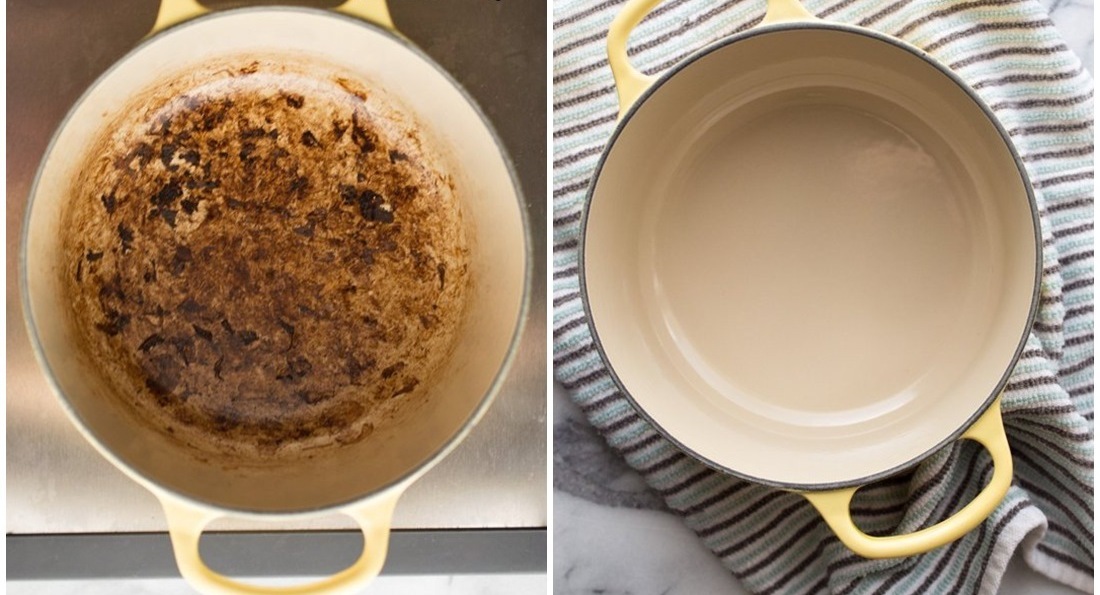
How to clean an enamel pan from burnt jam
Enamel is resistant to alkaline and acidic environments. Baking soda, table salt, table vinegar and other available products can be used to clean pots and other similar kitchen utensils.
Using Apple Peels
The peel of one or two kilograms of sour apples is placed in a burnt dish, filled with water, and boiled for 20–30 minutes. After complete cooling, the carbon deposits on the bottom are removed with a soft sponge.
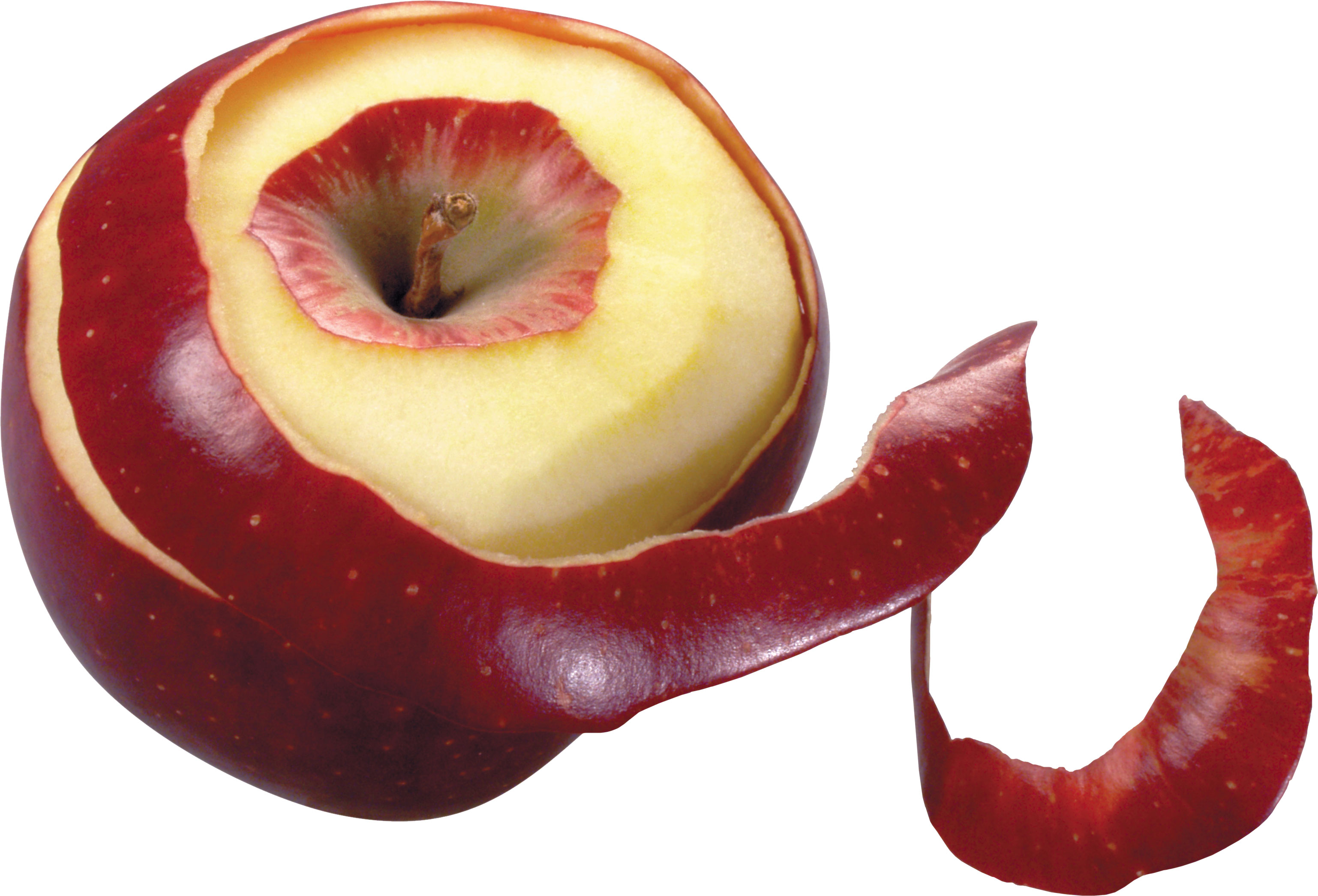
Opinion: simplicity, cheapness, availability, strong burning is unlikely to work.
Cleaning with table vinegar
Pour 9% table vinegar onto the bottom of the burnt pan. After 2-3 hours, you can begin to remove the softened carbon deposits with a wooden spatula or plastic scraper. After complete cleaning, the pan should be washed under running water.
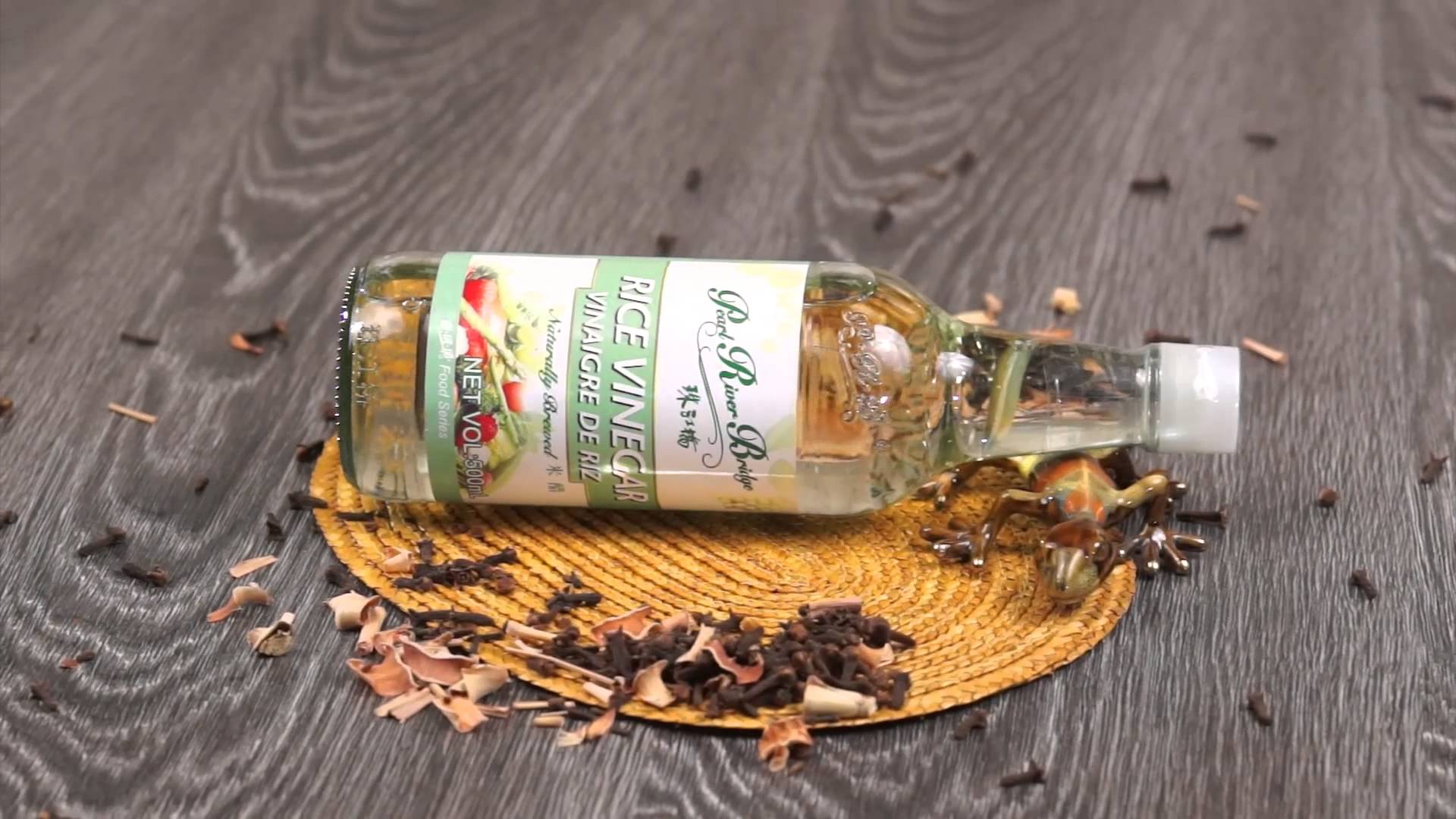
Opinion: availability, simplicity, economy, will cope with various cases of carbon deposits, both simple and complex.
Uses of baking soda
Mix 10 tablespoons of soda with water until you get a mixture of the consistency of thick sour cream. Apply this mixture to the surface that needs cleaning. After one or two hours, the surface can be scrubbed with a soft brush. For a heavily burnt surface, the procedure with the application of a thick soda solution can be repeated.

Opinion: the most famous, cheap, highly effective method, used to remove any complexity of carbon deposits.
Method of cleaning with citric acid
Dissolve 20 grams of dry citric acid in a liter of water. The mixture should cover all burnt areas. Boil for 20-30 minutes over low heat. After cooling, clean the plaque with a soft cloth.
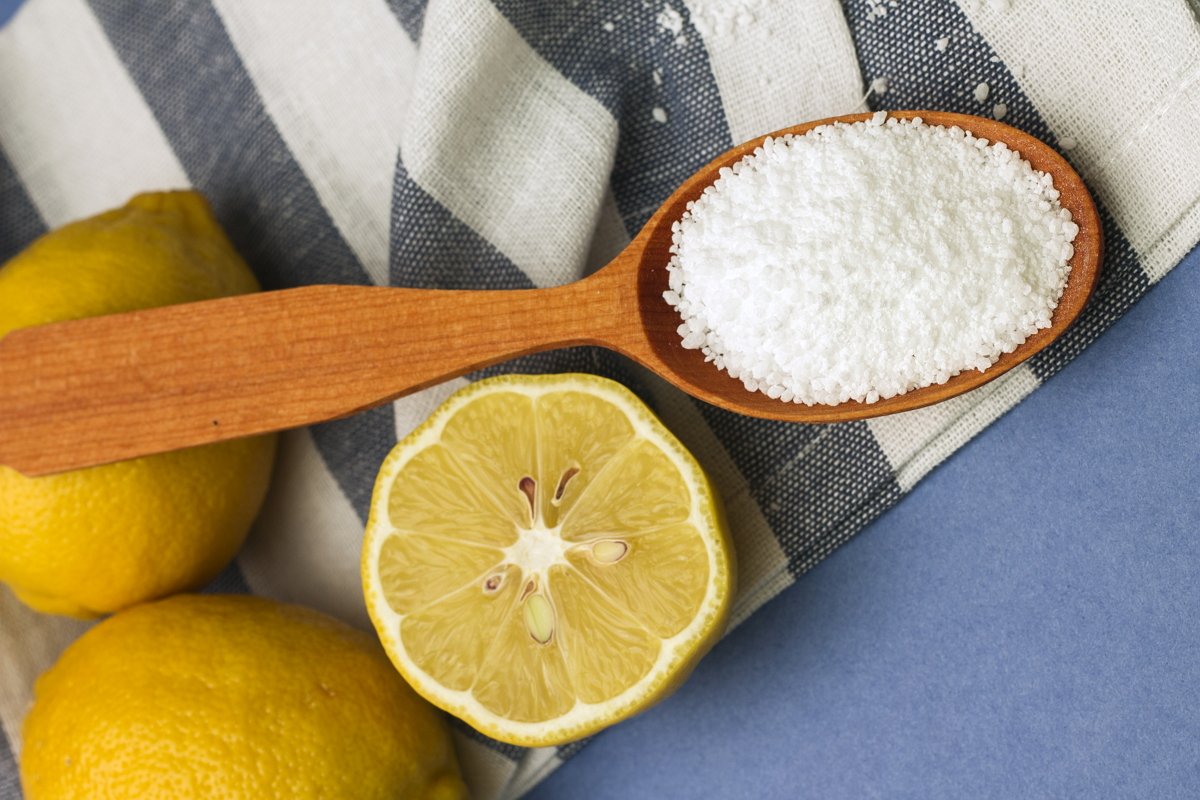
Opinion: the method is accessible, inexpensive, and effective in almost all cases.
How to remove carbon deposits with salt
Sprinkle the burnt areas with water and sprinkle with fine salt. After a while, add a little more water so that the salt begins to dissolve. Leave the mixture for 3-4 hours. Clean the carbon deposits with a soft sponge and detergent, wash the dishes from dirt, rinse well.
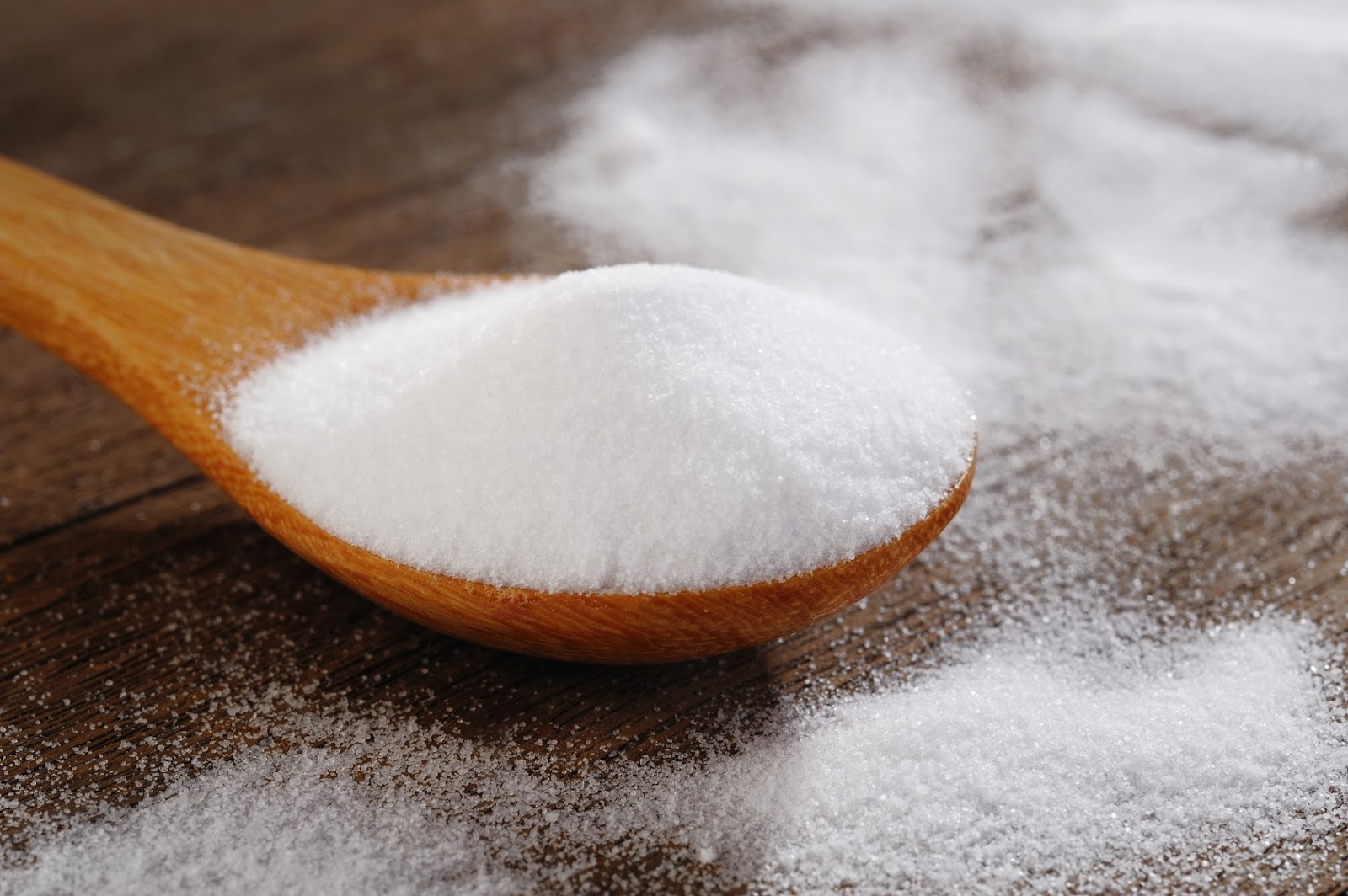
Opinion: cheap, accessible, fairly reliable.
Removing burnt jam with PVA glue and soap
Prepare a solution in a separate container: take half a bar of regular laundry soap, grate it beforehand, for 5 liters of water. Add 2 tablespoons of PVA glue to the mixture. Immerse the burnt pan in the solution and boil for one to two hours. Cool in the same solution, then remove the carbon deposits with a soft cloth. Rinse the pan thoroughly to remove the used reagents.
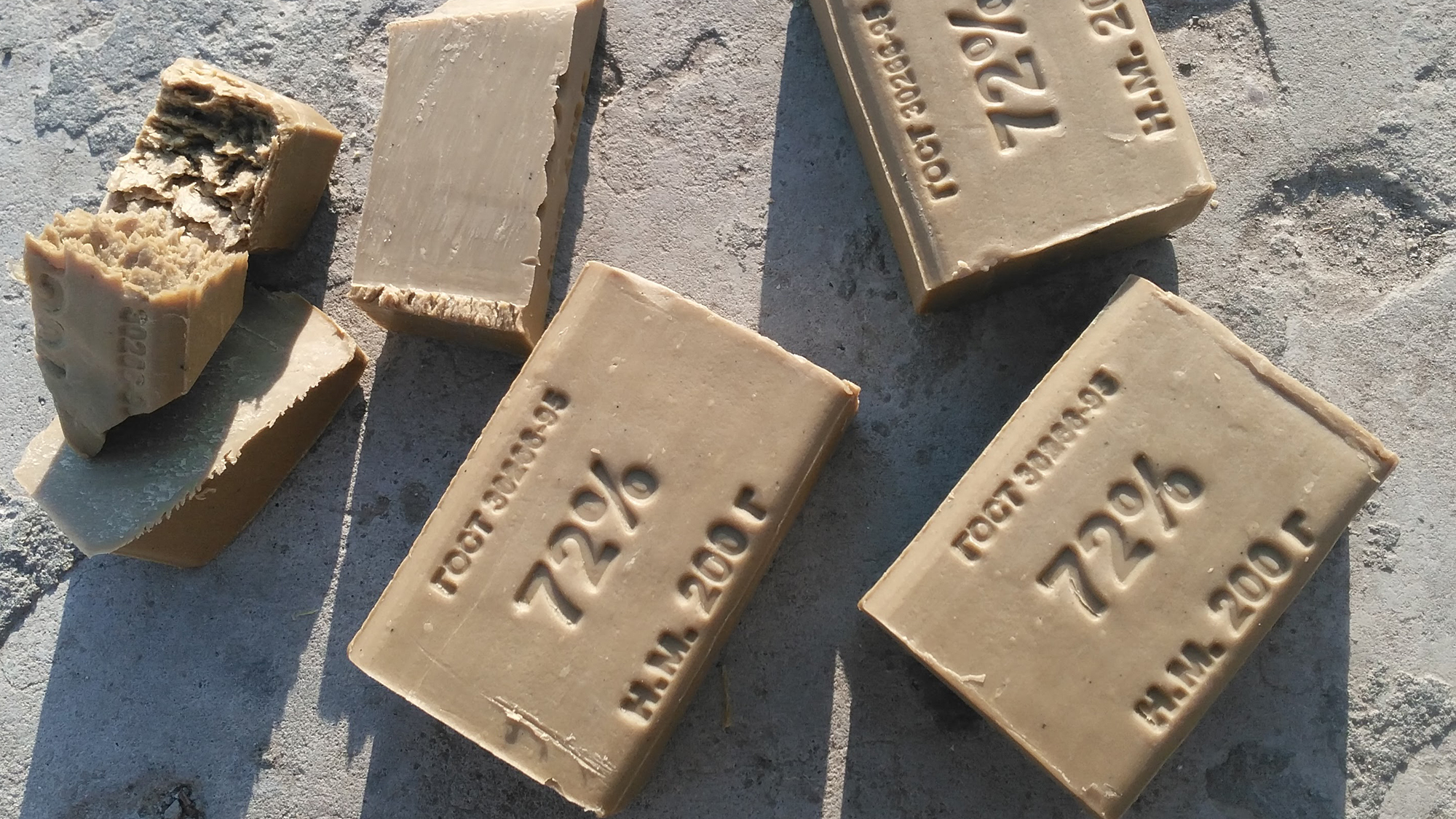
Opinion: less accessible, can't be called cheap, effective in all cases.
Removing impurities with serum
Pour the required amount of whey into the burnt vessel and leave for 24 hours. Remove the stain by rubbing with a soft cloth and detergent. Rinse under running water.
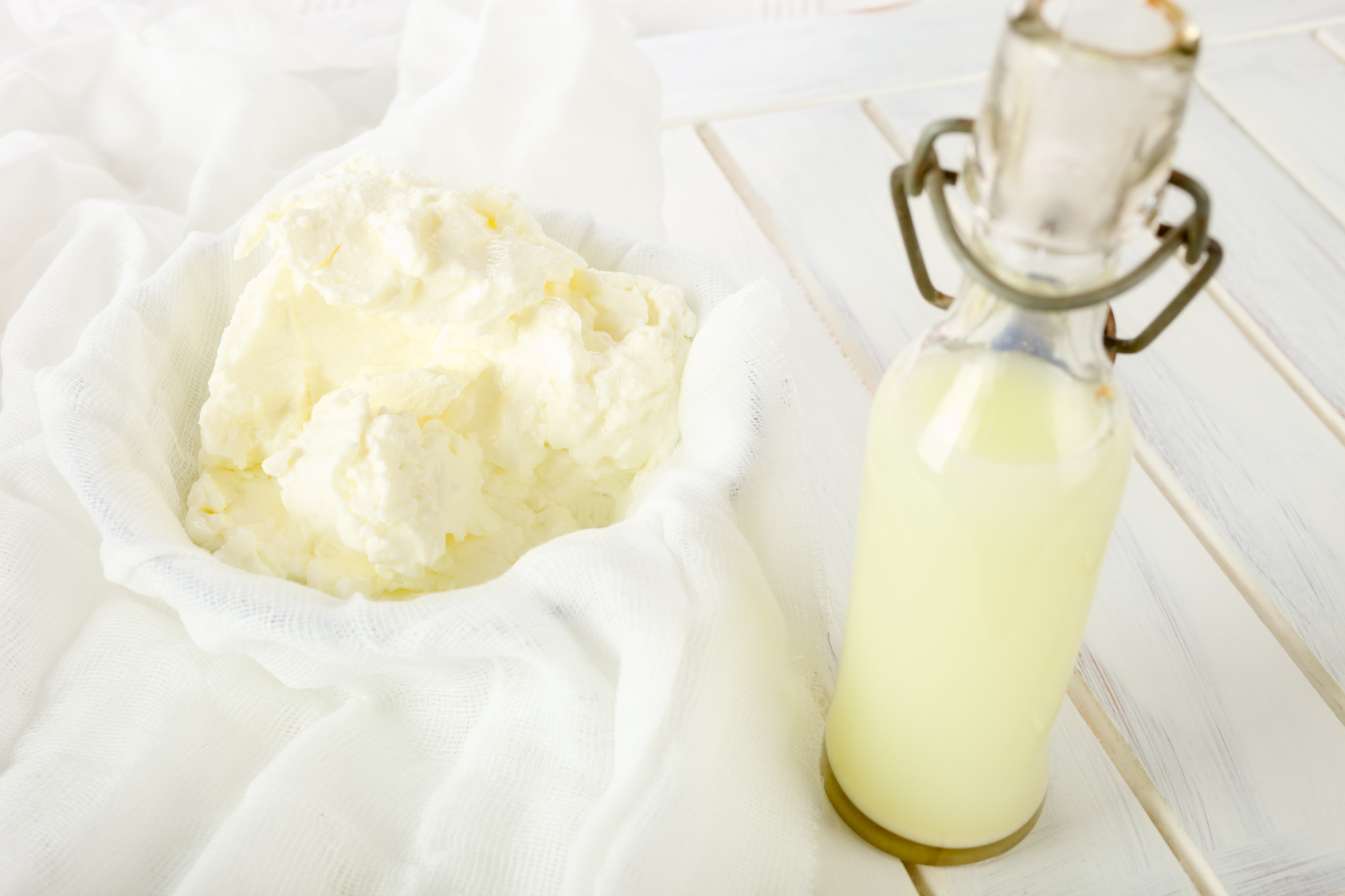
Opinion: affordable, economical, with strong carbon deposits there may be problems.
Boiling method
Pour 10 liters of water into a large container, grate a piece of laundry soap, add 200 grams of baking soda. Dip the burnt pan into the solution and boil for 30 minutes over low heat. After cooling in the same solution, clean from dirt and rinse well under running water.
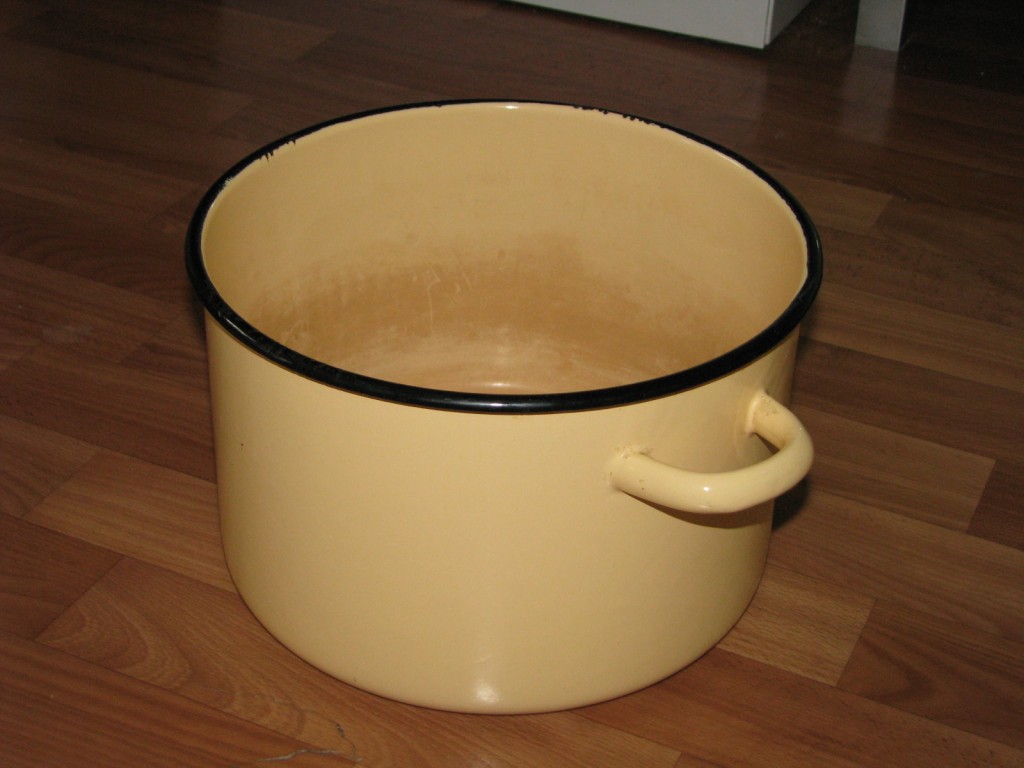
Opinion: availability, relatively cheap, high efficiency, sufficient labor intensity.
How does activated carbon work?
“Activated carbon” is available in tablets and fine powder. It is a porous substance by structure, a sorbent by properties, capable of absorbing various types of dirt. For cleaning, you can take 8-10 tablets, grind in a mortar or weigh out 4-5 grams of the finished ground substance. Pour the resulting powder onto problem areas, spray with water from a spray bottle, and leave for half an hour. Add a little water, leave for another 30 minutes. Wipe off the carbon and wash the dishes.
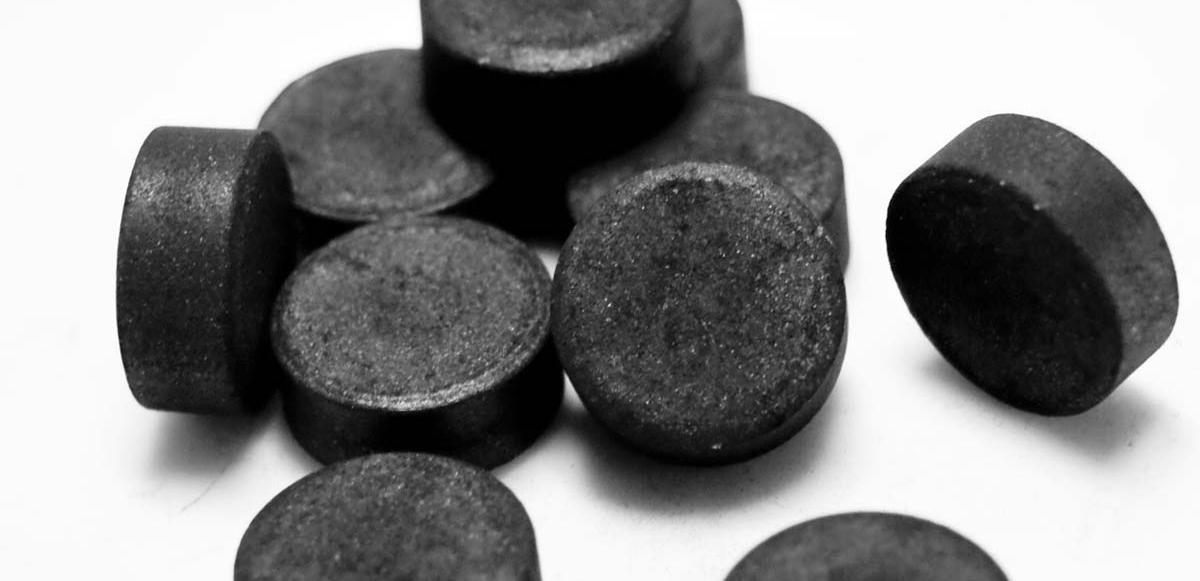
Opinion: Inexpensive, accessible method for simple cases of burning.
Let's try some soda
To remove burnt jam, use sweet carbonated drinks (Coca-Cola, Pepsi, etc.). Due to the content of orthophosphoric acid, any problem areas are well cleaned. Pour the drink into the burnt-on dish and leave for a day. Wash with a soft cloth with detergent, rinse until clean.
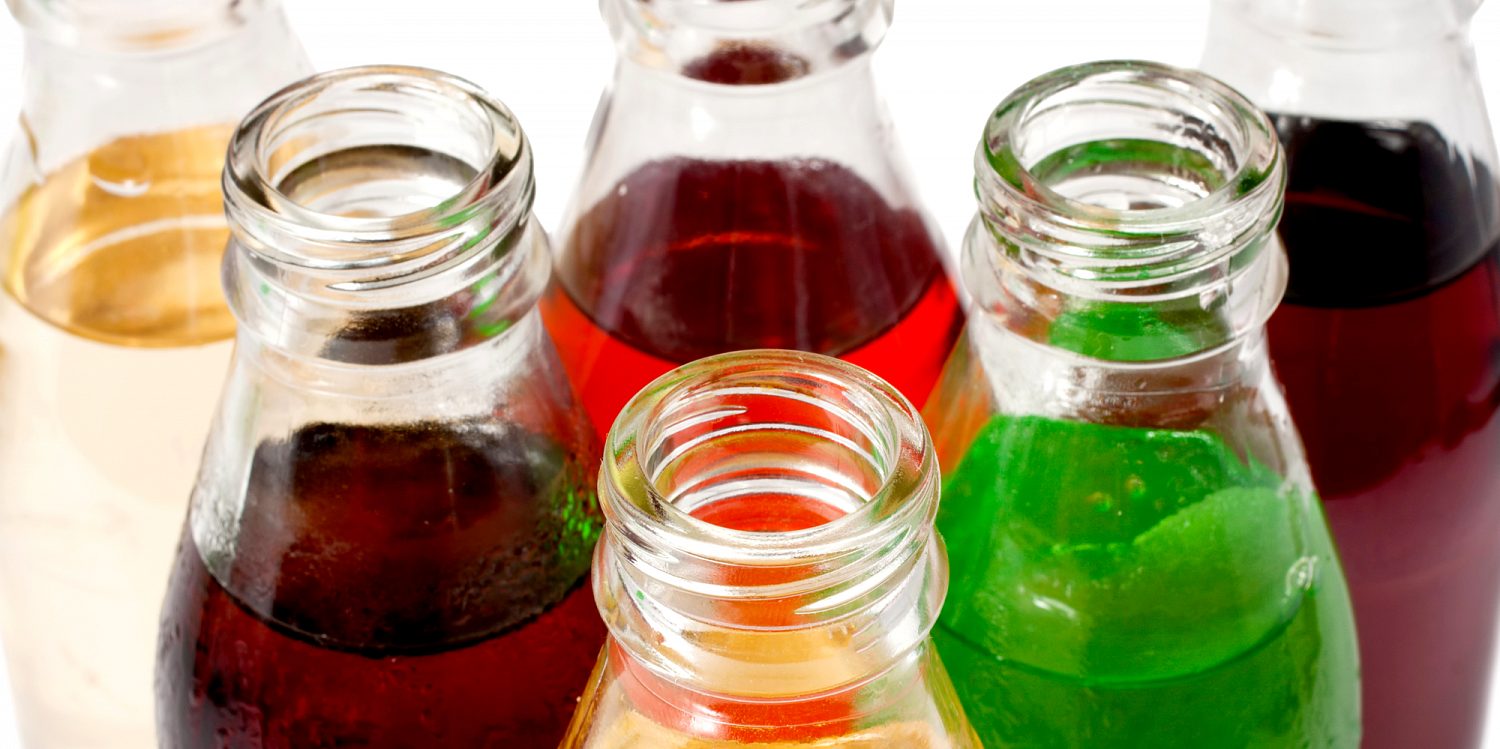
Opinion: availability, relatively expensive, removes almost everything.
Special products for cleaning burnt pans
The question “How to clean burnt jam in an enamel saucepan?” can be solved with household chemicals sold everywhere. Usually these are gels or sprays for cleaning enamelware. Some use products for removing carbon deposits and cleaning ovens. Such cleaning agents have a number of advantages over folk remedies:
- rapid onset of effect within 10-20 minutes;
- simplicity of the process (apply the product, wash it off after a while or remove it with a cloth);
- high quality dirt removal;
- ease of use.
How to deal with severe burning of the enamel surface
- Pour 9% table vinegar into a container pre-cooled to room temperature overnight. In the morning, remove the softened substance with a soft dish sponge. To remove the remaining carbon deposits, pour water into the container with two tablespoons of powdered citric acid, boil until the burnt jam is completely removed.
- Take a tablespoon of salt and the same amount of soda. Apply the dry mixture to the burnt area and pour in table vinegar. After 3 hours, add water to the pan, put it on the fire and boil for 20-30 minutes.
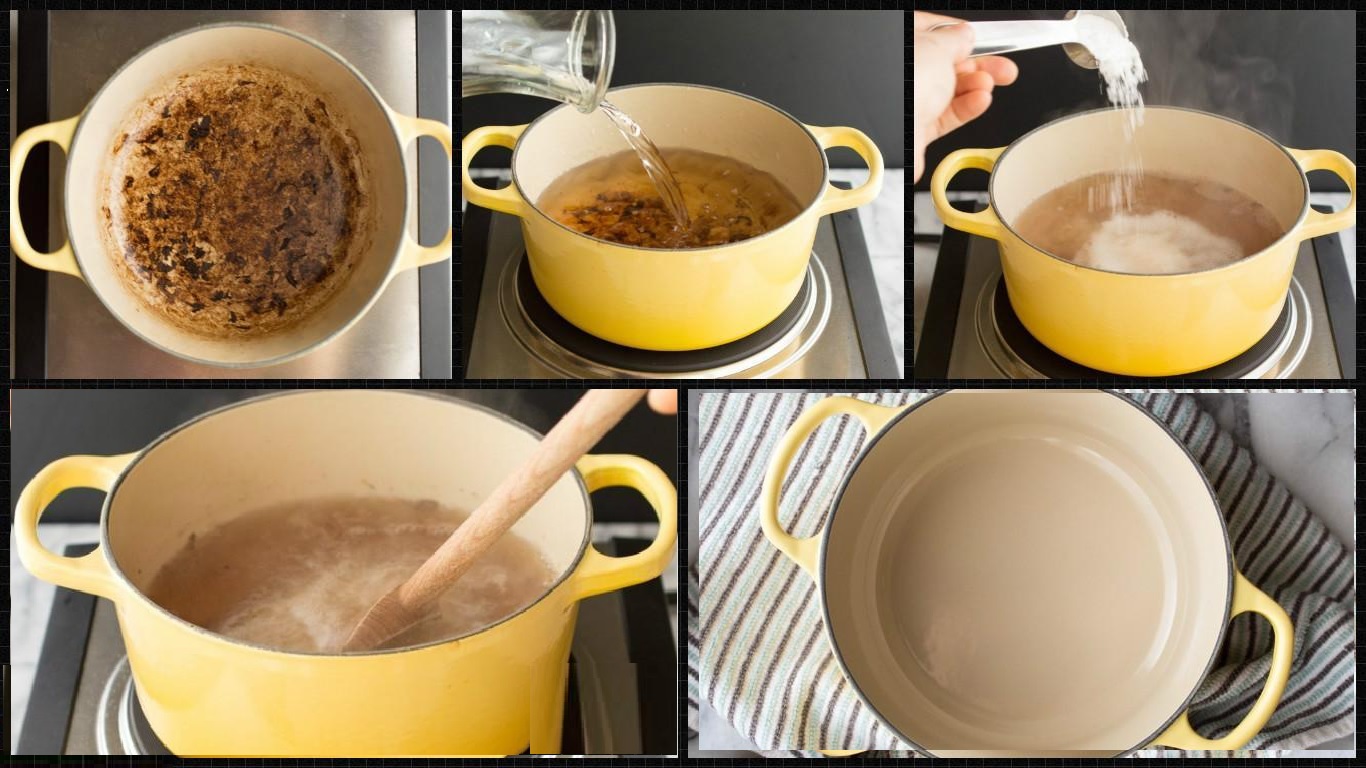
Important! If the cleaning is not 100% within the specified time, then the pan should be filled with vinegar and left for 2-3 days, then boiled until the burnt-on food is completely removed.
Conditions for high-quality cleaning:
- you need to start cleaning burnt dishes immediately;
- the pan should cool down after cooking;
- Do not use coarse metal brushes or abrasive cleaning agents that damage the enamel; special attention should be paid to this;
- When working, do not rush, maintain the time according to the instructions and recommendations.
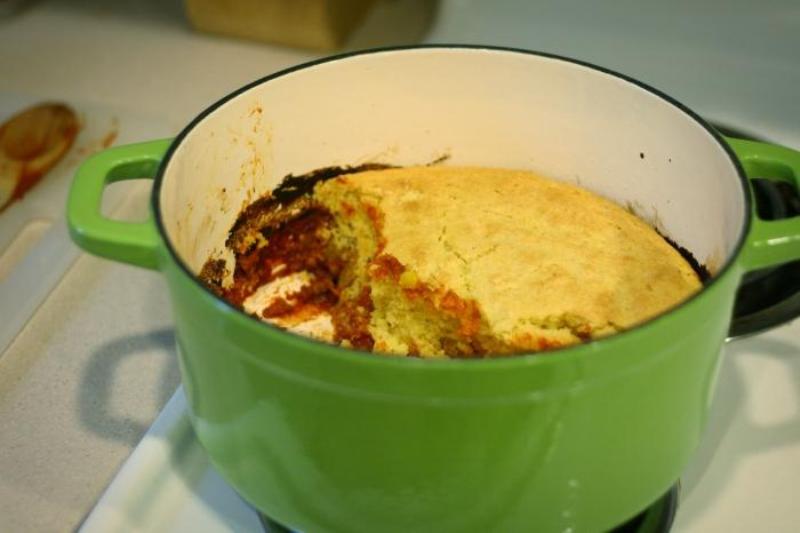
Preventive measures when cooking jam in enamelware
- stir constantly;
- cook at low temperature;
- Do not cover the pan with a lid to speed up cooking.
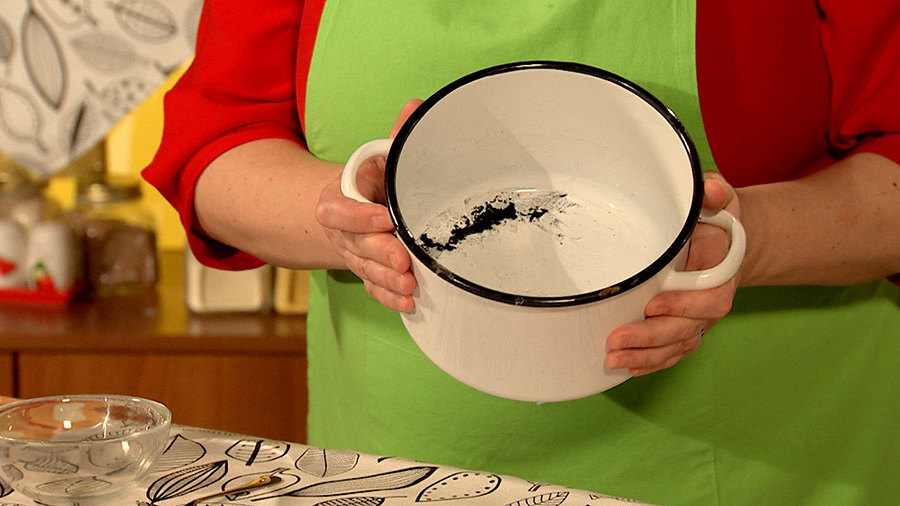
How to care for enamel cookware
- Use strictly as intended for cooking liquid dishes (soups, borscht, compotes);
- Do not boil hard water in dishes to prevent plaque;
- Do not use hard metal sponges or abrasive cleaning agents for washing. Do not scratch dishes with a knife or fork.
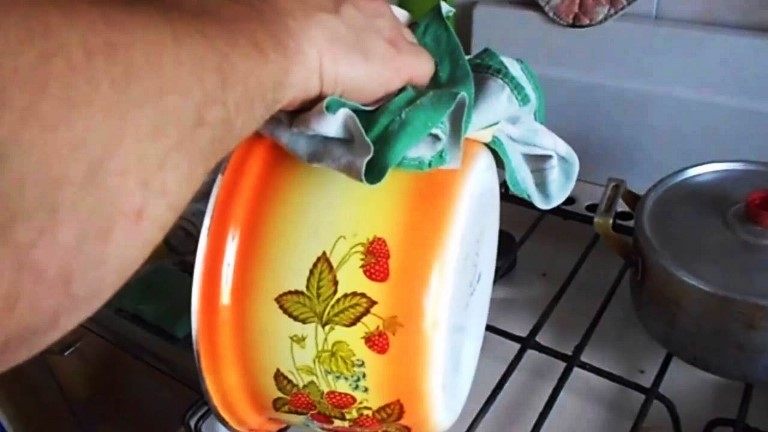
Additional information! Enameled cookware with chips cannot be used for cooking, it may be unsafe for health!
When cooking in enamel cookware, you need to follow simple operating rules, follow recommendations and instructions for care. This will allow you to keep the pots in good condition for a long time, and housewives will enjoy the time spent in the kitchen.
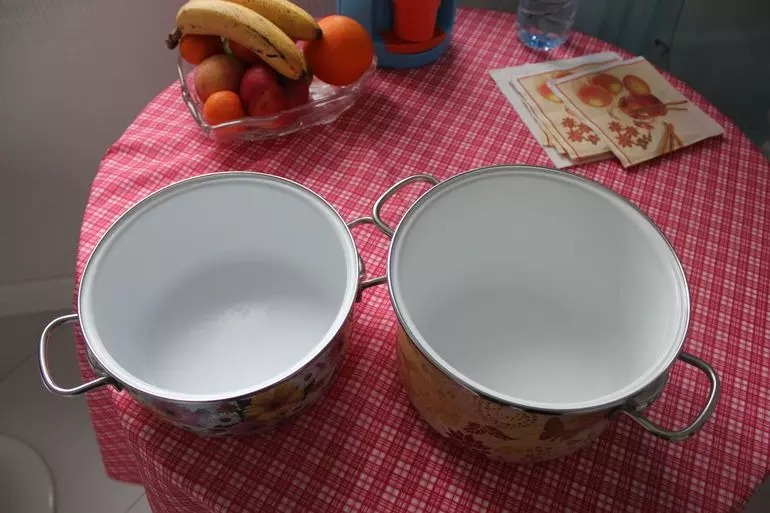

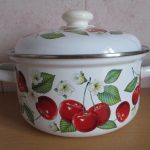
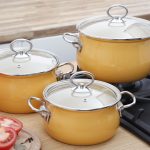
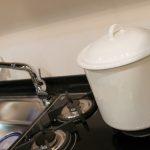
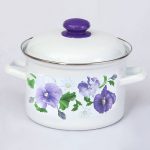
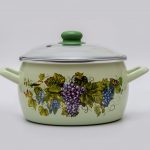
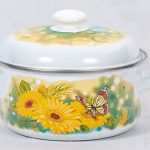
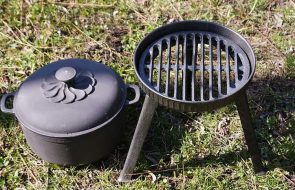

From my personal experience. The bottom of an enamel pot also got burnt while I was making apple jam. I tried everything: soda, a metal Amway sponge, acid (I boiled it), and Shumanit. It cleaned off little by little, but there were still black spots that couldn't be scraped off even with a knife. I poured water and baking soda over everything and put it on the veranda for, as I thought, a couple of hours. Then I forgot about it for a few days. There were frosts at that time, but I had no time to deal with the pots and pans on the veranda, so they stood in the cold for a couple of days. Today I got around to getting them out of the veranda with frozen water. Imagine my surprise when the thawed ice floated up along with the carbon deposits! I haven't found such a method anywhere, so I'm taking credit for it for now and sharing it with you!